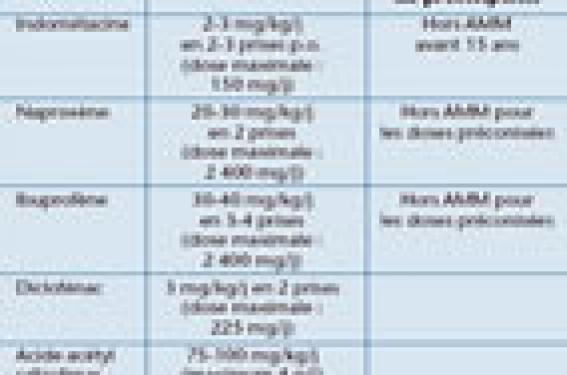The health field is based on knowledge of available treatments and their implications. Among the most prescribed medications to treat gastric disorders isomeprazole, an antacid known for its effectiveness in reducing the production of stomach acid. Used to manage conditions such as ulcers, THE gastroesophageal reflux and the esophagitis, omeprazole comes in different forms, including gastro-resistant capsules of 20 mg. However, despite its benefits, this medication does not escape side effects, some of which may be cause for concern. Patients may experience adverse reactions such as digestive upset, diarrhea, of the nausea or vomiting, while other more serious effects, although rare, such as skin reactions severe, deserve special attention. Before initiating treatment with omeprazole, it is crucial to fully understand the implications of this medical prescription and to inquire about the possible risks associated with its use.

L’omeprazole is a widely prescribed medication belonging to the proton pump inhibitor (PPI) class. Its main role is to reduce the secretion of stomach acid, making it a preferred choice for the treatment of various gastric conditions such as ulcers, gastroesophageal reflux disease, and esophagitis. Before initiating it, it is crucial to understand not only its clinical indications, but also the side effects associated, in order to guarantee safe and efficient use.
Indications and Dosage of Omeprazole
L’omeprazole is primarily indicated for the treatment of conditions related to overproduction of stomach acid. This includes conditions such as gastric ulcer, duodenal ulcer, and gastroesophageal reflux disorders. As a gastric antisecretory, it acts by irreversibly inhibiting the enzyme responsible for the production of acid in the stomach. This mechanism of action helps reduce abdominal pain and promote healing of gastric lesions.
The typical dosage for adults with gastroesophageal reflux disease is often 20 mg per day, administered orally as a gastro-resistant capsules. It is recommended to take the medication before a meal to maximize its effectiveness. For more detailed information on dosage, it is advisable to consult a reliable medical source such as public drug database.
Side Effects of Omeprazole
Like any medication,omeprazole can induce side effects, some benign and others more serious. Among the most commonly reported side effects are gastrointestinal disturbances such as diarrhea, constipation, nausea And vomiting. These disturbances may vary in intensity and generally improve with time or after dosage adjustment.
On a more serious level, some patients may develop serious skin reactions, such as Stevens-Johnson syndrome, which require immediate medical attention. Other serious complications, although rare, include toxic epidermal necrolysis and the drug reaction with eosinophilia and systemic symptoms. These manifestations are often preceded by warning signs such as skin rashes or itching.
It is essential to be aware of these effects when starting treatment withomeprazole. Additionally, this medication may interfere with certain other medications. For example, it may reduce the absorption of vitamin B12, which could lead to deficiencies with prolonged use. It is therefore recommended to monitor the levels of this vitamin in patients on chronic treatment with omeprazole.
It can also interact with medications like blood thinners, changing their effectiveness. It is recommended to always discuss current medications with your doctor or pharmacist to avoid unwanted interactions. For a detailed list of side effects, see medical resources such as Vidal.
The duration of use of theomeprazole should also be carefully considered. Taking this medication for a long time may increase the risk of developing infections, including pneumonia and gastrointestinal infections. Long-term PPI use has been linked to an increased risk of benign polyps of the stomach, although these results still require further research.
Under these different aspects, it is imperative to evaluate the benefit-risk ratio of theomeprazole. Regular follow-up with a healthcare professional during treatment is recommended to adjust the dosage and check for the absence of adverse effects. Clear communication between the patient and healthcare professional will optimize therapeutic results while minimizing risks.

FAQs on medical prescription and side effects of omeprazole
What is omeprazole? L’omeprazole is a medication used to treat various stomach disorders, such as stomach ulcers and gastroesophageal reflux disease.
How does omeprazole work? This medication works by decreasing the production of acid in the stomach, which helps reduce pain and discomfort related to stomach problems.
What are the indications for omeprazole? It is prescribed for conditions such as esophagitis due to gastroesophageal reflux, gastric and duodenal ulcers.
What is the recommended dosage of omeprazole? The dosage depends on the condition being treated; it is crucial to follow the advice of a healthcare professional for correct use.
What are the possible side effects of omeprazole? Side effects include gastrointestinal disturbances such as diarrhea or constipation, as well as nausea and vomiting.
Are there any serious skin reactions associated with omeprazole? Yes, serious skin reactions, such as Stevens-Johnson syndrome and toxic epidermal necrolysis, have been reported, although this is rare.
Can you experience long-term side effects? Effects such as dizziness or visual disturbances may occur. Medical supervision is therefore essential when treatment is prolonged.
What medications should not be taken with omeprazole? Some medications, especially those that require an acidic environment for effective absorption, may interact with omeprazole. Consult your pharmacist or doctor for more details.
When is it best to take omeprazole? It is generally recommended to take it before meals to maximize its effectiveness.
How to manage unused medications? Always ask your pharmacist how to properly dispose of medications that are no longer needed.












